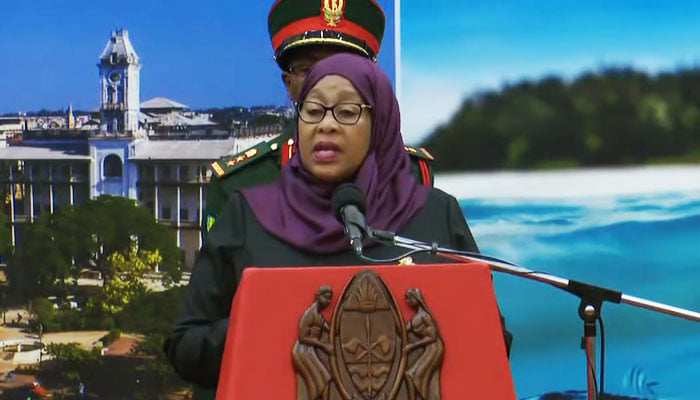GENDER activists in Tanzania are not impressed by President Samia Suluhu Hassan’s most recent appointment of 33 regional commissioners of whom only four are women, a quick vox pop survey by SAUTI KUBWA has revealed.
Most of the interviewees, senior in their own right, said the appointments, announced on Saturday afternoon,had painted President Samia as a gender-insensitive leader, against everyone’s expectations.
Pili Mtambalike, a seasoned journalist and gender activist, said: “I was really surprised. Iam not sure how to interpret this but it surely is disappointing.”
Dr Ananilea Nkya, the former executive director for the Tanzania Media Women’s Association (TAMWA), said: “In my view, she seems to be gender insensitive.”
Rosemary Mwakitwange, a media leader and civic space activist, simply said: “Disappointing!”
Dr Hellen Kijo-Bisimba, the former executive director for the Legal and Human Rights Centre (LHRC), commented: “I really do not get it but I think, maybe, she does not want to be seen as changing much of her predecesor’s (appointees) although, on this one, he had five (female) RC’s and she has appointed only four; or she might be relying much on her assistants who are already gender blind.”
Gender specialist Leticia Mukurasi had a lengthy and deeper analysis of President Samia’s most recent appointments. She said:
“We now have a new president who happens to be a woman. In fact, she said so herself, ostensibly to stop the noise from the male chauvinists in the Tanzania social media who were questioning a woman’s capability to lead.
“Taken literary, the import of her statement to some, is that she is a woman, biologically but ideologically patriarchal. Many women have expressed dismay and disappointment with the male-dominated appointments that she is making.
“For example out of 33 appointments at senior level that she just made, only 6 are women! This was done in spite of her declaration that she will appoint qualified women as a matter of priority.
“I believe that given women’s gain in education and training, Tanzania has an ample number of qualified women who could be appointed.
“Of course, the president’s choices are influenced by those who are close to her and these, given historical factors, are still predominantly men.
“Given their numerical advantage and proximity to power, they are in a position to recommend other men with whom they socialise informally on various arenas. In addition, women are put to a further disadvantage as the criteria for promotion is not always transparent.
“I am an ardent admirer of the President but one of those who are still hopeful because I believe she is in a position to set new pro-equality precedents.
“That said, I think this last bout of appointments was mostly an exercise in musical chairs, just recycling the same men some of whom are perceived by many to be dysfunctional and unfit to lead.
“The President needs to inject the system with some dynamic and capable women who could shake it and assist in transforming it.”
One senior retired permanent secretary, preferring to remain anonymous, said: “I am disappointed, because we are not short of capable women. Let us wait and see other appointments.”
The only apologetic voice came from Salome Kitomari, the chairperson of MISA-TAN, who said: “Let’s give her time as she has more appointments to make. Yes, she promised to appoint women to top posts, but there are many appointments to come for senior positions. Then we can make a fair judgement.”
Samia’s female appointments in question include Nenelwa Mwihambi who becomes the first female National Assembly clerk; Zainab Telack (RC for Lindi); Rosemary Senyamule (RC for Geita); Queen Sendiga (RC for Iringa); and Mwanamvua Mrindoko (RC for Katavi). The rest of her appointees for RCs are men, most of them old faces recycled from previous regimes.










